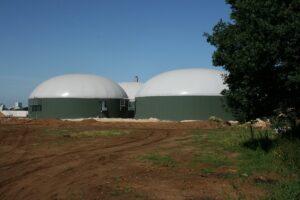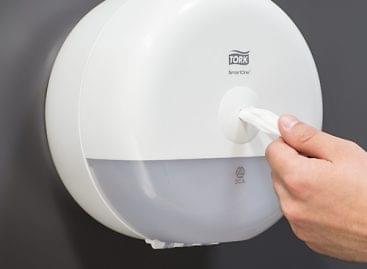After the approval of the GVH, Mol took over the Szarvasi Biogas Plant
After the approval of the Economic Competition Authority (GVH), the Mol group took over the Szarvasi Biogázüzem. In May, the company concluded an agreement with BayWa AG on the purchase of the waste processing plant, which represents another important step in the implementation of its long-term strategy, the oil company told MTI on Wednesday.

Biogas plant (Photo: Pixabay)
The Szarvasi Biogas Plant uses organic waste to produce electricity and heat with cogeneration, with a peak electrical capacity of approximately 4 megawatts. According to the company’s information, the plant annually processes more than 40,000 tons of waste from meat production in the region, and another 53,000 tons of residual waste (such as slurry and manure) from neighboring livestock and meat processing farms. In addition, about 18,000 tons of agricultural substrate are used as raw material for the plant, which produces more than 12.5 million cubic meters of biogas.
The green energy transition is accelerating
The Mol group is constantly expanding its bio and renewable energy production portfolio in order to speed up the green energy transition and strengthen the security of supply in the region – the announcement quotes Ádám Horváth, the company’s director of Downstream New and Sustainable Businesses. By purchasing the Szarvasi Biogas Plant, Mol can achieve valuable synergies and contribute to the EU’s energy independence efforts and the implementation of the REPowerEU action plan, he added. The statement pointed out: the acquisition is in line with the long-term sustainability strategy of the Mol Group, Shape Tomorrow 2030+, which aims to accelerate the green energy transition and start the circular economy of the Central and Eastern European region. Mol makes its chemical, petrochemical and refining activities more sustainable with strategic partnerships, investments and research and development activities, they wrote.
MTI
Related news
Tork at SIRHA Budapest: hygiene, efficiency and sustainability for the HoReCa sector
🎧 Hallgasd a cikket: Lejátszás Szünet Folytatás Leállítás Nyelv: Auto…
Read more >Bonduelle achieves B Corp™ certification worldwide
🎧 Hallgasd a cikket: Lejátszás Szünet Folytatás Leállítás Nyelv: Auto…
Read more >Essity in EU flagship project PROTEUS to develop bio-based super absorbents from algae
🎧 Hallgasd a cikket: Lejátszás Szünet Folytatás Leállítás Nyelv: Auto…
Read more >Related news
State compensation for the victims of Bászna Gabona Zrt. has been completed
🎧 Hallgasd a cikket: Lejátszás Szünet Folytatás Leállítás Nyelv: Auto…
Read more >József Viski: Adaptation and competitiveness are key for the horticultural sector
🎧 Hallgasd a cikket: Lejátszás Szünet Folytatás Leállítás Nyelv: Auto…
Read more >Festival buzz at the 60th anniversary EuroShop trade fair
🎧 Hallgasd a cikket: Lejátszás Szünet Folytatás Leállítás Nyelv: Auto…
Read more >







